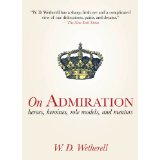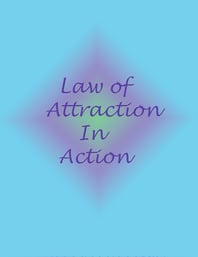 I’m delighted to have an interview with W.D. Wetherell, award-winning author of over a dozen books including Soccer Dad and Morning. His short stories have appeared in many publications including Kenyon Review, Tri-Quarterly, New England Review, Atlantic, Southern Review, and Graffiti. He has also written essays and travel pieces for the New York Times, the Boston Review, and other periodicals.
I’m delighted to have an interview with W.D. Wetherell, award-winning author of over a dozen books including Soccer Dad and Morning. His short stories have appeared in many publications including Kenyon Review, Tri-Quarterly, New England Review, Atlantic, Southern Review, and Graffiti. He has also written essays and travel pieces for the New York Times, the Boston Review, and other periodicals.
In a refreshing departure from today’s celebrity worship cultivated by reality television, tabloid photos, and celebrity twittering, Wetherell’s new book, On Admiration, celebrates the heroes and heroines who have peopled his life from his earliest years. In this humorous, insightful memoir that speaks powerfully about the state of fame, celebrity culture, and honest admiration, Wetherell skillfully reminds us of the magic and mystery that comes with slow discovery–of that first awareness of those figures who awoke something within us, that inspired us as children, teenagers, and adults–forever altering the landscape of ourselves. Learning what qualities deserve admiration so you can choose wisely is critical! Here’s what Wetherell had to say:
?
How do you see young people today admiring the wrong role models? Young people HAVE to admire, the emotion is wired into them, and has been ever since we’ve walked upon the earth. What troubles me is seeing this need in young people harnessed and exploited by mass media, so millions of young people admire exactly who mass culture tells them to admire–a list that changes, yes, every fifteen minutes. There’s a do-it-yourself quality to real admiration, an anarchistic something, that makes the heroes and heroines we find on our own, without anyone telling us about them, the role models and mentors that end up making a difference.
What impact do you think today’s celebrity and reality show role models are having on the people who look up to them? Our celebrity culture, with its worship of people who are famous for being famous, is about as opposite from true admiration as it’s possible to be.
What do you think people today can learn from your book? Admiration is and always has been one of the great human emotions and yet, oddly, hardly anything has ever been written about it explicitly. Sure, there are lots of admiring biographies and tributes out there….you think immediately of Boswell…but writers tackling the notion of admiration itself? Not much written about it at all, which is surprising and sad. And admiration seems to be an old-fashioned, almost forgotten emotion today–all the more reason to celebrate it.
What did you learn from the people you wrote about? I learned about creative ambition, hard work, humility, creative courage, sheer endurance.
What does admiration actually mean to you? Admiration is one of those emotions that, like love, takes you out of yourself, relieves you from the dreadful self-absorption we all suffer from, raises mankind in your estimation, at a time when so much lowers and degrades.
How do you recommend people chose who they admire? My temptation is to say you can’t tell people who to admire, people have to find their own heroes, heroines, mentors and roll models–certainly, that’s always been my own experience. But, if you’re a parent, you can certainly nudge and prod your children toward people they might learn from and admire, though the key word here is “nudge” not force. My deepest hunch is that those who admire deeply are always self-taught.
How can people use what’s in the book or in people they admire to make themselves more worthy of admiration? It’s an old-fashioned idea, an antique idea really, that you can better yourself by admiring estimable people. And yet, with all the obvious pitfalls, I think admiration CAN elevate you, raise your standards, give you someone to emulate. I know, with writing, my main driving motive has always been, not money, not fame, but emulation; I admired great writers when I was just starting out, I wanted to produce work that they could read (their ghosts could read) without my being embarrassed. Admiration has proven to be a valuable asset in my professional life, raised the bar higher, when so much in our culture tends to lower it.
How can you prevent yourself from admiring the wrong people? You can’t, alas. But wrong admirations, worshiping heroes who turn out to have feet of clay, is part of the process; I had to admire Davy Crockett before I could admire Leo Tolstoy! You have to cut your baby teeth of admiration on whoever is on hand.
Check out W.D. Wetherell’s book, On Admiration. You’ll get a wonderful look at qualities to look for in others.
Please leave comments under my posts so we can stay connected.

